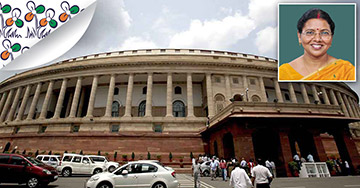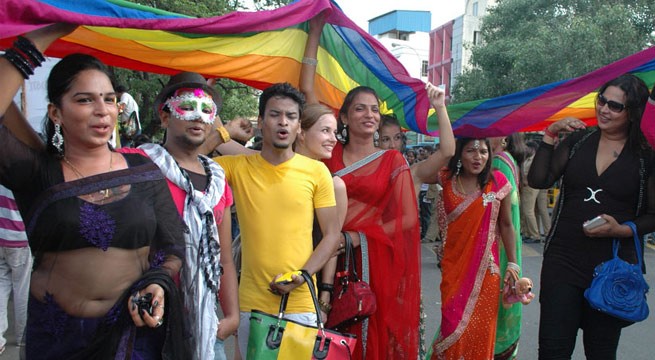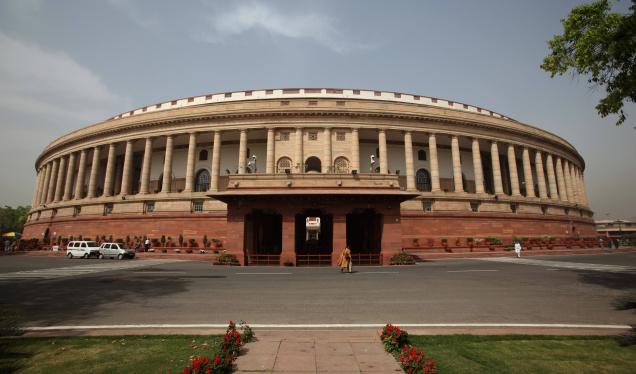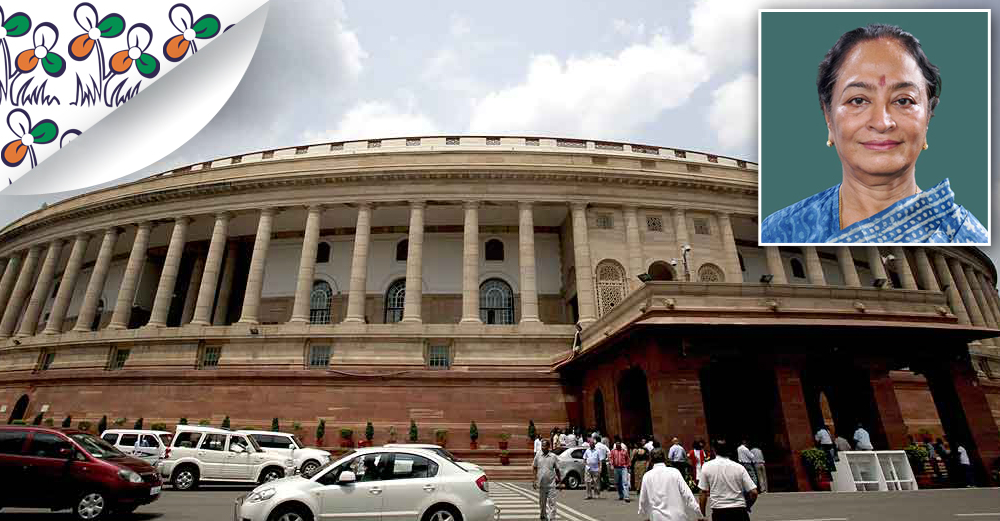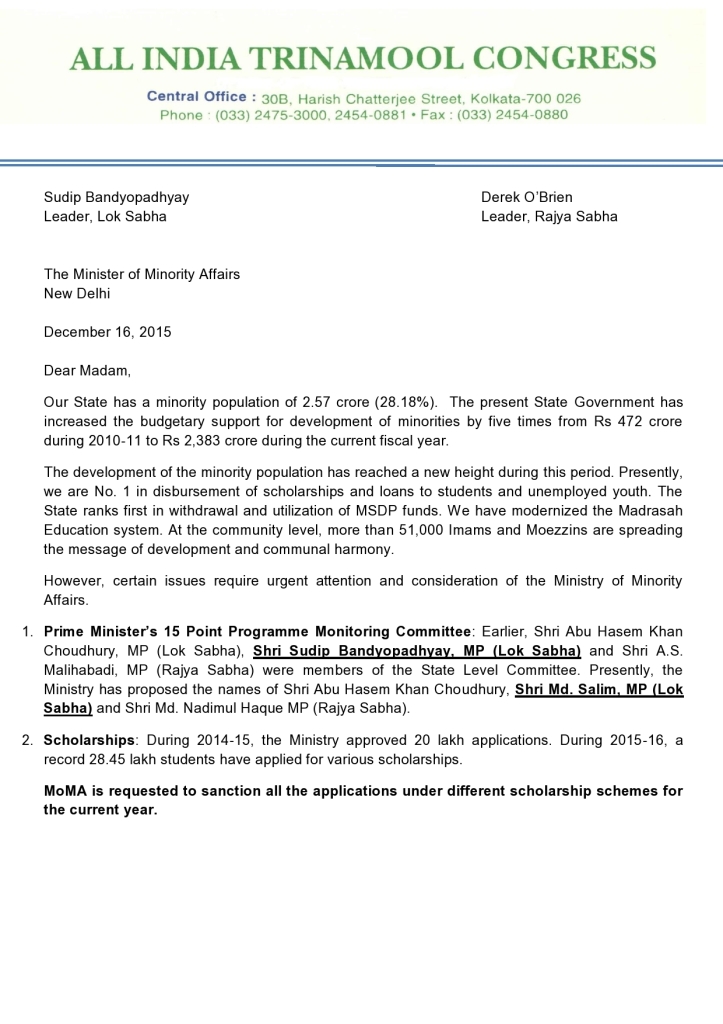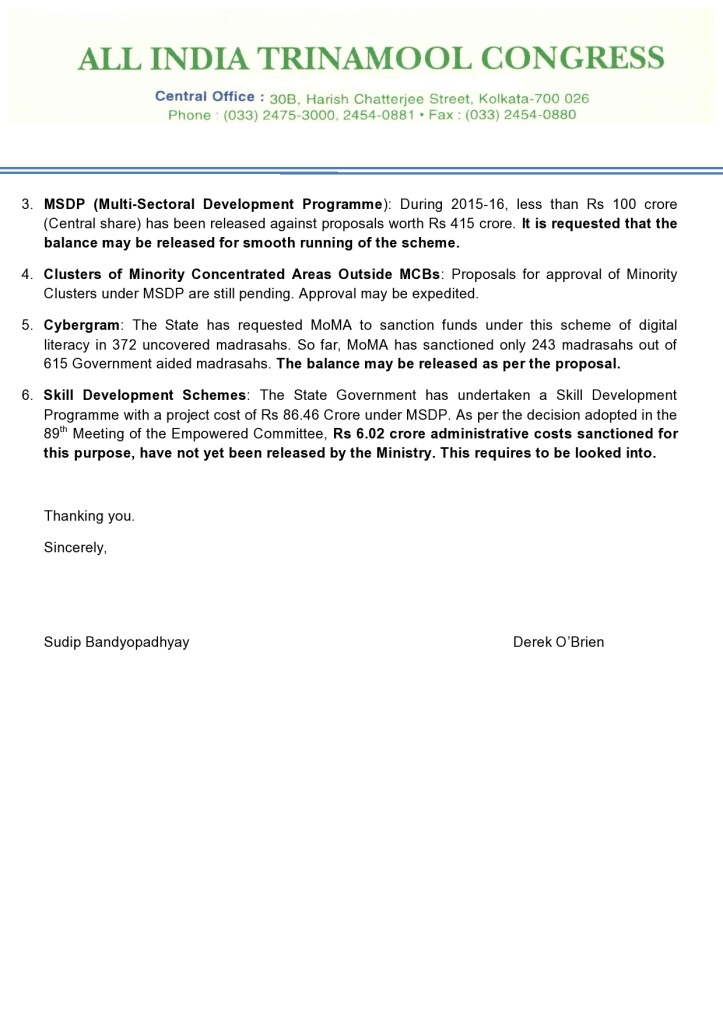Main aapke abhari hoon aur meri party Trinamool Congress aapke abhari hain ki is vishay pe mujhe bolne diya giya hain. Pehle toh bolna chahti hoon ki I welcome this Bill from my party; that this is a really good step commercial ek court alag sa aa jayegi kyun ki civil court jo hain aur jo High Courts vagera main, jo criminal courts hain, wahan pe itne saare pending, abhi Kirtoi Azada saab bol rahe they kitne saare pending hain, ki humlog chauka jaate hain ki kab yeh clear hogi. Aur aam aadmi ke liye bahut hi musibat wali baat hain, saach mein jo, jo Kirti Azad saab ne bol rahe they baar baar, hamare liye bahut musibat wali baat hain, isi liye logon zyada tar jaana nahin chahte court me, usko aage se saltana chahte hain iss liye corruption bhi barte hain, ki bahar main salta lo bhai, agar court mein jayenge toh zyada din time lagega. Yeh commercial court jo banne ki baat ho rahi hain bahut hi behtar hain.
Par abhi jo pending civil suits hum dekh rahe they, bahut saare hain. Bombay, Calcutta, Delhi, Madras, Himachal Pradesh, abhi itne saare hain. 1 crore ki jo maang hain sirf usi ka khali hain… hum dekh rahein they ki Delhi ka 12,653 pending cases hain. Toh yeh 1 crore ke liye commercial dispute pending cases hain khali Delhi ke liye hain. Abhi Bombay hain, Calcutta hain, madras hain, Himachal Pradesh hain.
Abhi toh yeh bahut hi achha ki hamare pass ek dusri court aa jaye. But the thing is, jo batein ho rahi hain, ki judges chahiye, jo sahin tarah se yeh proper judgements kar pay eta ki commercial disputes ke liye microeconomics ki upar unka kuch training bahut hi zaroori hain aur continuous training training bahut zaroori hain ta ki who commercial dispute ko thik se nibha paye aur jaldi se uska koi anjaam de paye. This should be a time-bound judgement kyun ki hamare yahan job hi judgements aate hain yeh saalo saal chalet hain. Toh abhi Kirti Azad saab bol rahein they ki unhi ki upar ek baara saal chal rahein hain. Toh yeh saalo saal jo judgements para rehte hain, toh yeh abhi bahut hi zaroori hain ki koi bhu judgement should come out as a time-bound judgement. Yeh Government ko mera request hain ki yeh mantra saab soche ki kaise time-bound judgement hamare yahan aa jaaye jo aana bahut hi zaroori hain.
Iss bare main we should keep it in mind that trained judges should come according to the need. Huge backlogs are there, huge backlogs. Abhi usko bhi kaise niptaya jaayein iske bare bhi humein sochna chahiye ki kaise kiya jaayein. Aur yeh jo abhi dekh rahein they, papers bhi dekh rahein they kyunki mera subject yeh hain. Mujhe pehlein hi bol dena chahiye ki I am from science background dfinitely, so I am not a lawyer but humlog aam aadmi, jaise humlog aam janta hain, dekhte hain, jo public ke liye bahut hi musibat wali baat ho jati hain. Yeh commercial court mein chota chota Vishay mein – ki ghar ka kuch ho giya hain, yeh court mein chala jaate hain, yeh saalo saal chalet hain, toh paisa kidhar se aayega. Sach mein, yeh commercial court agar Government really interested to set up such commercial courts, they should first think ki kaise isko hum logon ke liye attractive karein, ki log jayein aur judgement miley unko, ta ki hum pocket se paisa dete dete jab fakir ho jayein uske baad koi judgement aayein, mar jatein, bahut saare cases hain jahan pe log zinda bhi nahin hain, aur uske baad judgement aata hain.
Toh aisa time-bound judgement hona chahiye, chahein commercial court banaiye ya kuch bhi banaiye. Civil, criminal courts mein itne saare judgements parein huye hain, abhi usko commercial courts mein kuch transfer kiya bhi jayein, agar proper judges nahin honge, agar proper judgement nahin aayega, time-bound nahin hoga koi kaam, toh hamare liye faidaman nahin rahega. Yeh Government jab yeh achhi step le rahin hain ki commercial courts aayenge aur ek appellate division bhi hoga, district courts ho jayega chota chota, who sab thik hain. Lekin judges itna kahan se aayega, whether they can be trained or not, how could they be trained, jo judges hain usi mein se aap utha ke commercial courts mein bhijwa denge? Agar who hoga, toh idhar pending bar jayega. Toh iske liye pehle sochna zaroori hain ki commercial setup is very good, we are really welcoming that, but the thing is that we should think of trained judges to be appointed there, in commercial courts, in appellate divisions, in district courts, ta ki hamare judgements jaldi aayein. Hamari sabse zyada zaroori hain yeh jaldi aana chahiye.
Aaj Nirbhaya case ke bare mein baat chal rahin thi, tab mujhe yaad aa raha tha, koi bhi cases hamara para rehta hain, paar rehta hain. Isko kahin pehle Government ko deal karna chahiye kaise judges aayenge, jo serying judges hain doosre civil courts mein, criminal courts mein, usko na la ke, kaise chun ke, microeconomics par jiska kaam hain, joh commercial disputes pe kaam kar sakte hain usko bulake, aur the people who are coming up, usko kaise utilise kiya jaaye, Government ko isko alag ke sochna chahiye. Mujhe lagta hain ki time-bound judgements agar aa jayegi tph hamare liye, hum sab ke liye, yeh Bharatvarsh ke liye yeh bahut hi welcome decision ho jayegi. Thank you very much. Hum itna hi janna chahte hain Mantri saab se ki yeh judges ke appointments ke baarey mein kya soche hain. Mujhe lagta hain ki who kuch alag baat karenge isme. Thank you very much. Namaste

